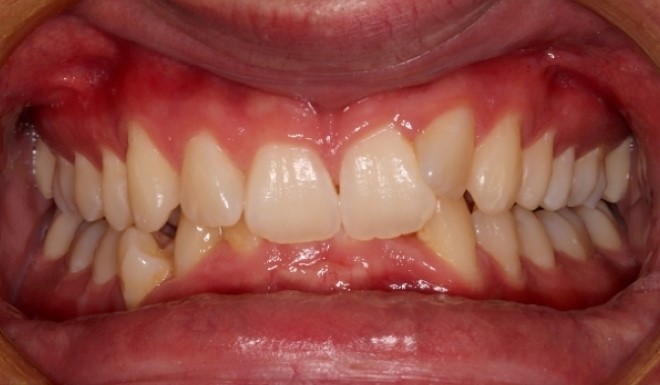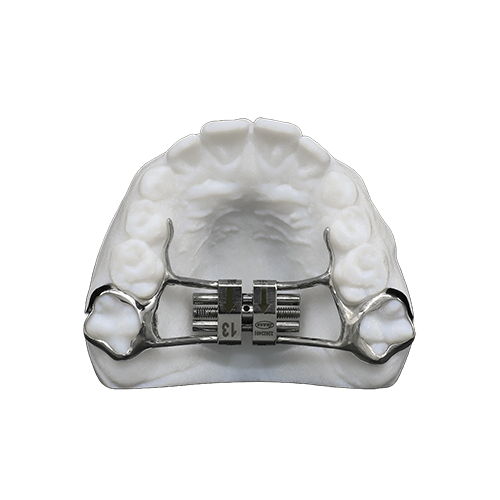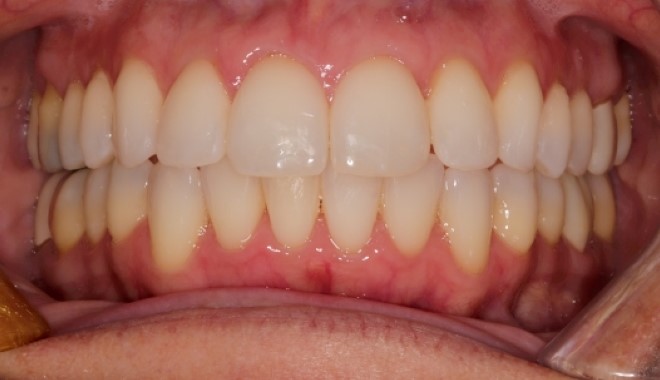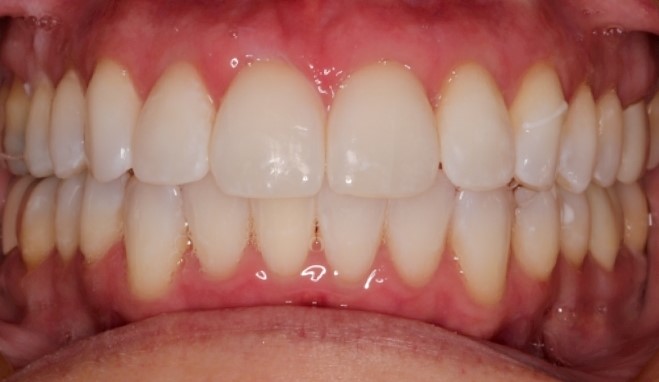What is an Overbite? Causes, Effects and Treatment
September 9th, 2024
An overbite, also known as a "deep bite" or "vertical overlap," is one of the most common orthodontic issues. It occurs when the upper front teeth extend significantly over the lower front teeth, leading to an uneven bite and potentially causing various dental problems if left untreated.

What Causes an Overbite?
Overbites can develop due to several factors, many of which are rooted in genetics or habits formed during childhood. Some common causes include:
Genetics: Overbites often run in families. If one or both parents had an overbite, there's a higher chance their children will also develop one.
Thumb Sucking or Pacifier Use: Prolonged thumb sucking or excessive pacifier use during childhood can push the upper teeth forward, leading to an overbite.
Tongue Thrusting: This habit involves the tongue pushing against the upper front teeth, contributing to the development of an overbite over time.
Teeth Grinding (Bruxism): Constant grinding of the teeth can wear down tooth enamel and change the alignment, worsening an overbite.
Jaw Development: The development of the upper and lower jaws may be disproportionate, causing the upper jaw to protrude more than the lower jaw.
What Are the Effects of an Overbite?
While a mild overbite might not cause immediate problems, a severe overbite can have various long-term effects on your dental health, appearance, and overall well-being:
Worn Teeth: The upper teeth overlap the lower teeth excessively, causing uneven wear and increasing the risk of tooth enamel damage.
Jaw Pain: Overbites can contribute to temporomandibular joint (TMJ) issues, leading to chronic jaw pain, headaches, and discomfort when chewing or speaking.
Speech Impairment: Severe overbites can affect speech by altering the placement of the tongue during speaking, leading to issues such as lisps.
Gum Damage: When the lower front teeth are in constant contact with the gum line of the upper teeth, they can wear down the gums, increasing the risk of gum disease and recession.
Esthetic Concerns: A noticeable overbite can affect the symmetry and appearance of your smile, making some people feel self-conscious about their appearance.
How is an Overbite Treated?
Fortunately, overbites can be effectively treated through orthodontic interventions. The treatment plan depends on the severity of the overbite, age of the patient, and overall dental health. Here are some common options:
Braces: One of the most common treatments for correcting an overbite is traditional braces. Braces apply steady pressure on the teeth, gradually shifting them into proper alignment over time.
Clear Aligners (Invisalign): For those seeking a more discreet option, clear aligners like Invisalign can effectively correct mild to moderate overbites gradually repositioning the teeth similar to braces.
Orthodontic Appliances: In children or younger patients, orthodontic appliances such as a growth modification device can help guide jaw growth and prevent the overbite from worsening.
Surgical Correction: In extreme cases where the overbite is caused by a significant jaw discrepancy, orthognathic surgery may be necessary to correct the position of the jaw.
Why Seek Treatment from an Orthodontist?
When it comes to treating an overbite, it’s important to see a specialist like an orthodontist. Orthodontists undergo additional years of specialized training beyond dental school, allowing them to diagnose and treat complex bite issues more effectively. While some general dentists may offer orthodontic services, they do not have the same level of expertise in managing and correcting occlusion(bite) issues like overbites.
Delaying treatment or relying on a non Orthodontist can result in more severe dental problems down the line, often requiring more complex and expensive interventions later on. By seeking early treatment from an orthodontist, you can ensure the best possible outcome for your dental health and overall quality of life.
At Strouse Orthodontics, we specialize in correcting overbites and other bite issues using the latest orthodontic technology. If you or your child is experiencing an overbite, schedule a consultation today to explore your treatment options. A healthy, aligned smile is just a visit away!



